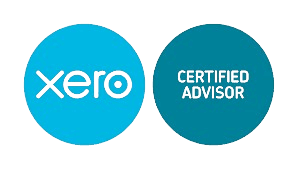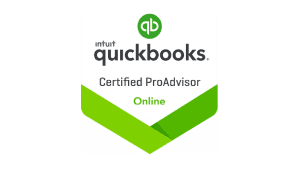Europe boasts a diverse selection of esteemed accounting and bookkeeping firms that serve the financial requirements of both businesses and individuals throughout the continent. Ranging from international leaders to regional experts, these firms offer a wide range of services such as auditing, tax strategy, financial reporting, and business consulting.
France
Aviaan:
Aviaan Accounting is a prominent accounting and bookkeeping firm that operates in both Spain and France. Although it may not rival the size of the “Big Four” firms, Aviaan has built a solid reputation for delivering personalized and high-quality accounting services to businesses of all sizes in these two nations. As a result, Aviaan Accounting has become a preferred option for many companies in search of dependable and customized accounting solutions in Spain and France.
PricewaterhouseCoopers (PwC):
As one of the “Big Four” accounting firms, PwC maintains a robust presence in France, providing a wide range of services to both multinational corporations and local enterprises.
KPMG:
KPMG, another member of the “Big Four,” has a notable presence in France, offering audit, tax, and advisory services to a varied clientele.
Mazars:
Mazars is a leading international accounting firm based in France, recognized for its proficiency in auditing, tax, and advisory services catering to businesses of all sizes.
Spain:
Deloitte:
As a prominent player in the professional services sector, Deloitte maintains a significant footprint in Spain, delivering a wide array of accounting, auditing, consulting, and advisory solutions.
EY (Ernst & Young):
Recognized as one of the “Big Four,” EY has established a robust presence in Spain, serving the requirements of multinational companies, small and medium enterprises, as well as individual clients.
Grant Thornton:
A highly regarded accounting and advisory firm, Grant Thornton has a notable presence in Spain, offering audit, tax, and business consulting services to a diverse range of industries.
Other Notable European Firms:
KPMG:
KPMG operates throughout Europe, delivering top-tier audit, tax, and advisory services to both multinational corporations and local enterprises.
BDO:
As a worldwide network of public accounting firms, BDO maintains a significant presence in Europe, providing a range of services including audit, tax, advisory, and business outsourcing.
RSM:
RSM is an international alliance of independent audit, tax, and consulting firms, with member firms located across Europe, catering to businesses of various sizes with their professional services.
This overview is not comprehensive, as there are many other esteemed accounting and bookkeeping firms in France, Spain, and across Europe, each with their own areas of expertise and strengths.
Important factors to consider when choosing an accounting and bookkeeping firm in europe
When choosing an accounting and bookkeeping firm in Europe, consider these key factors to ensure you select the right partner for your business:
1. Expertise and Services Offered
- Ensure the firm offers comprehensive services such as bookkeeping, tax compliance, payroll, financial reporting, and advisory.
- If your business operates across multiple European countries, choose a firm experienced in cross-border accounting and tax regulations.
2. Regulatory Compliance and Certifications
- Verify that the firm is compliant with European and national regulations (e.g., IFRS, GAAP, VAT, GDPR).
- Check for professional certifications such as ACCA (UK), CPA (France), or Steuerberater (Germany).
3. Industry Experience
- Choose a firm with experience in your industry to ensure they understand sector-specific financial challenges and regulations.
4. Technology and Digital Tools
- Ensure the firm uses modern accounting software like Xero, QuickBooks, SAP, or cloud-based solutions.
- Look for automation capabilities that improve efficiency and reduce manual errors.
5. Scalability and Flexibility
- The firm should be able to adapt to your business’s growth and changing needs.
- Consider whether they offer multilingual support for international operations.
6. Reputation and Client Reviews
- Check online reviews, testimonials, and case studies to assess their reliability and customer satisfaction.
- Request references from current clients, especially those in a similar industry or country.
7. Communication and Responsiveness
- Clear and timely communication is crucial. Ensure they provide dedicated account managers and regular updates.
- Language barriers can be an issue; ensure they can communicate effectively in your preferred language.
8. Cost and Pricing Structure
- Compare pricing models (fixed fees, hourly rates, or service-based pricing).
- Be transparent about hidden fees, extra charges, or service limitations.
9. Tax and Legal Advisory Capabilities
- If you need assistance with European VAT, corporate tax, or compliance with EU regulations, ensure the firm has tax specialists.
- Look for firms that offer legal advisory services for business structuring, mergers, or acquisitions.
10. Location and Local Presence
- If your business operates in multiple European countries, having a firm with offices across Europe may be beneficial.
- A local presence ensures a better understanding of country-specific accounting and tax regulations.
By considering these factors, you can select an accounting and bookkeeping firm that aligns with your business needs and helps ensure financial compliance and efficiency.
Common accounting and bookkeeping challenges faced by businesses in europe
Businesses in Europe face several accounting and bookkeeping challenges due to complex regulations, cross-border operations, and evolving financial standards. Here are some of the most common challenges:
1. Complex and Varied Tax Regulations
- Each European country has different tax rules, VAT rates, and filing requirements.
- Businesses operating in multiple countries must comply with different corporate tax and VAT regimes.
- Frequent changes in EU tax laws, such as DAC6 (mandatory disclosure rules), create compliance burdens.
2. VAT Compliance and Cross-Border Transactions
- Managing VAT for cross-border trade within the EU (OSS – One Stop Shop scheme) and non-EU countries can be challenging.
- Differences in VAT refund policies and reporting formats add complexity.
- Ensuring accurate VAT classification and avoiding penalties requires expertise.
3. Adapting to Digital Accounting and E-Invoicing
- Several EU countries mandate e-invoicing (e.g., Italy, France, Germany), requiring businesses to upgrade their accounting systems.
- Transitioning from manual to cloud-based accounting software can be costly and time-consuming.
4. Multi-Currency Transactions and Exchange Rate Fluctuations
- Businesses dealing with international suppliers and customers must manage currency conversions and exchange rate risks.
- Proper accounting for foreign currency gains/losses is essential for accurate financial reporting.
5. Payroll and Social Security Compliance
- Different employment laws and social security requirements across Europe complicate payroll processing.
- Employee benefits, pension schemes, and taxation rules vary significantly between countries.
6. Data Protection and GDPR Compliance
- Businesses handling financial data must ensure compliance with GDPR (General Data Protection Regulation).
- Secure storage and processing of accounting data require strong cybersecurity measures.
7. IFRS vs. Local GAAP Compliance
- Companies operating in multiple countries must reconcile financial reporting between IFRS (International Financial Reporting Standards) and national GAAP (Generally Accepted Accounting Principles).
- Differences in revenue recognition, lease accounting, and depreciation rules create reporting challenges.
8. Audit and Regulatory Requirements
- Businesses exceeding certain thresholds must undergo statutory audits, which require thorough financial record-keeping.
- Regulatory requirements differ across EU countries, adding complexity for multinational companies.
9. Managing Cash Flow and Accounts Receivable
- Late payments from clients (a common issue in the EU) affect cash flow and working capital.
- Monitoring outstanding invoices and enforcing credit policies is essential for financial stability.
10. Shortage of Skilled Accounting Professionals
- Many businesses struggle to find experienced accountants who understand both local and international financial regulations.
- Outsourcing to accounting firms or adopting AI-powered bookkeeping solutions is becoming a common alternative.
By addressing these challenges through automation, outsourcing, and expert advisory services, businesses in Europe can improve financial efficiency and compliance.
FAQ’S:
1. What are the common challenges faced by businesses in Europe regarding accounting and bookkeeping?
Businesses in Europe often struggle with challenges such as lack of employee expertise, security threats, record organization, meeting deadlines, cash flow management, and tax compliance.
2. How can businesses address the issue of employee skills and expertise in accounting?
Businesses can address the lack of employee skills by providing training, hiring specialized professionals, or outsourcing accounting functions to expert firms.
3. What measures can businesses take to protect against security threats in accounting departments?
To protect against security threats, businesses can implement robust cybersecurity measures, conduct regular security audits, train employees on security best practices, and use secure accounting software.
4. How can businesses streamline record-keeping processes in Europe?
Businesses can streamline record-keeping by utilizing cloud-based bookkeeping software, implementing standardized processes, conducting regular audits, and ensuring data accuracy and integrity.





